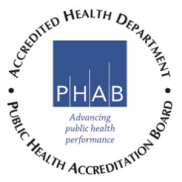Little Rock, Ark. – The Arkansas Department of Health (ADH) is warning of a possible Hepatitis A (Hep A) exposure after an employee of Wendy’s, located at 721 North Arkansas, Russellville, tested positive for the virus. Hep A is a contagious liver disease.
Anyone who ate at this facility between December 12, 2021, and January 3, 2022, should seek care immediately if they have never been vaccinated against Hep A or are unsure of their vaccine status. There are no specific treatments once a person gets Hep A; however, it can be prevented through vaccination or a medicine called immune globulin. This medicine contains antibodies from other people who are immune to Hep A. Vaccination and immune globulin post-exposure work best if given within two weeks of exposure to the virus.
Local pharmacies may be able to provide vaccination. Please call ahead to verify your pharmacy has the vaccine in stock. Vaccination is also available by appointment at the Pope County Local Health Unit. To schedule an appointment, call 479-968-6004. Anyone with symptoms or illness should seek care with their healthcare provider.
People without symptoms who have eaten at this Wendy’s between December 12, 2021, and January 3, 2022, and are:
- Under one year of age are too young to be vaccinated and may wish to seek out immune globulin from a health care provider.
- One year or older and has never been vaccinated for Hep A should seek out vaccination from a health care provider. Those who are pregnant, have a chronic illness, or have liver disease are especially encouraged to consult with their doctor.
Hep A is usually spread when a person ingests fecal matter — even in microscopic amounts — from contact with objects, food, or drinks contaminated by the feces, or stool, of an infected person. Hep A can also be spread through unprotected sex or sharing of injection drugs. According to provisional data, there were 390 cases of Hep A in Arkansas in 2020 and 467 cases in 2021.
“Hep A continues to be an issue in our state,” said Dr. Jennifer Dillaha, ADH Chief Medical Officer. “We are encouraging everyone to be aware of the risk factors for getting Hep A. If you are engaged in any of these behaviors, please get vaccinated. If you experience symptoms, visit your healthcare provider right away.”
Hep A is a contagious liver disease that results from infection with the Hepatitis A virus. Typical symptoms of Hep A include fever, fatigue, loss of appetite, nausea, vomiting, abdominal pain, diarrhea, dark urine, clay-colored bowel movements, joint pain, or jaundice (yellowing of the skin or eyes). It can range in severity from a mild illness lasting a few weeks to a severe illness lasting several months. A person can transmit the virus to others up to two weeks before and one week after symptoms appear.
The Hepatitis A virus can cause illness anytime from two to seven weeks after exposure. If infected, most people will develop symptoms three to four weeks after exposure. Many people, especially children, may have no symptoms. The older a person is when they get Hep A, typically the more severe symptoms they have. Almost all people who get Hep A recover completely and do not have any lasting liver damage, although they may feel sick for months.
Hepatitis A is preventable through vaccination. Hepatitis A vaccine has been recommended for school children for many years, and one dose of Hep A vaccine is required for entry into kindergarten and first grade as of 2014. Most adults are likely not vaccinated but may have been if they received vaccinations prior to traveling internationally. Please contact the local health unit in your county for more information about vaccination.
###


